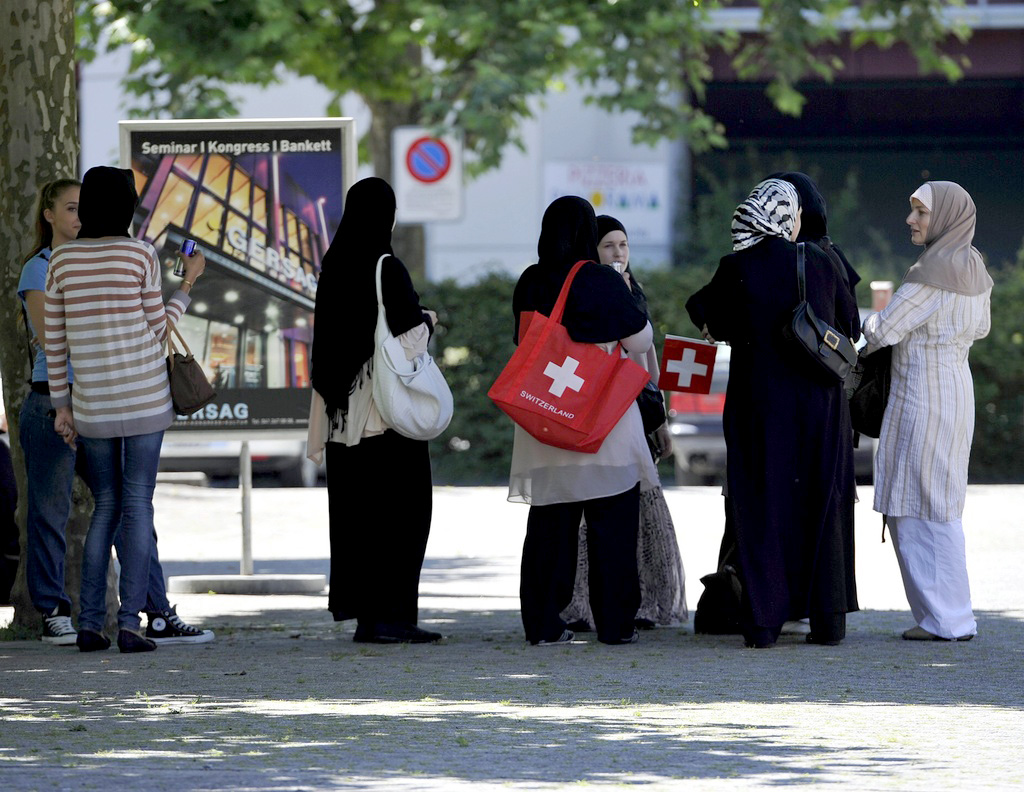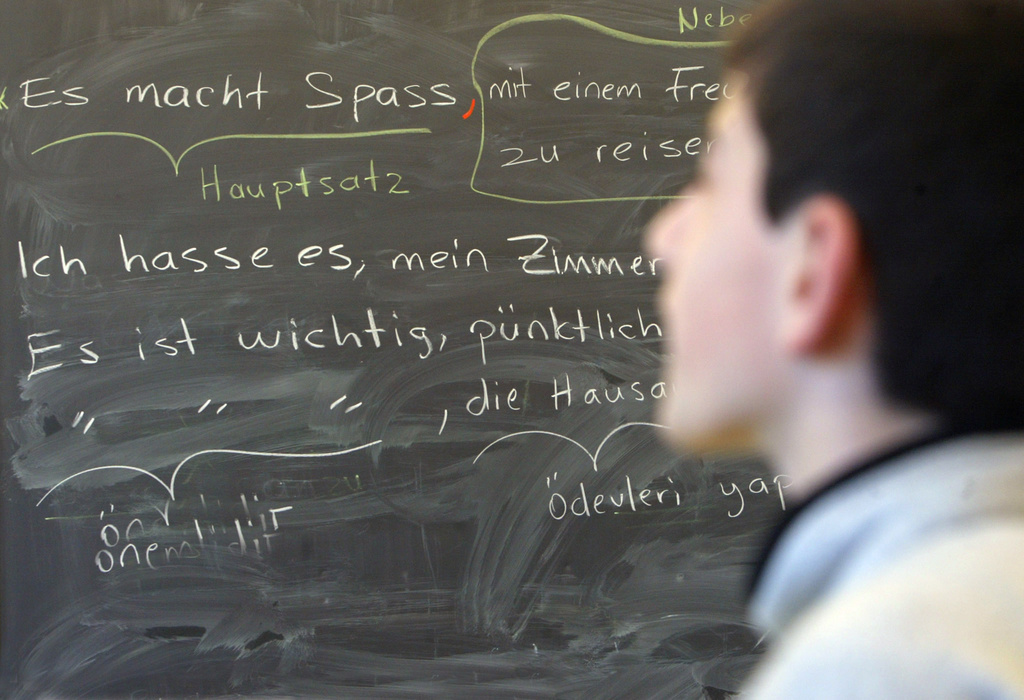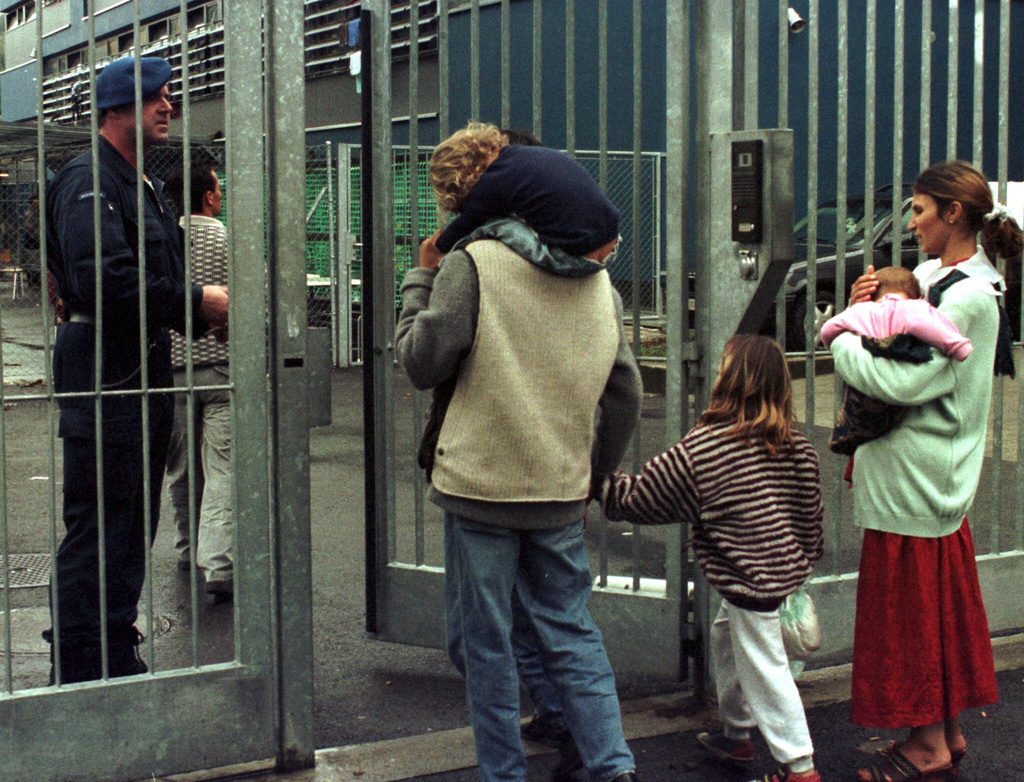Immigrant youths are “made in Switzerland”

A new book indicates that religion plays an important role in identity-building among adolescents with immigrant backgrounds in Switzerland.
The authors of “Youth, Migration and Religion”, which was presented at a roundtable at Lucerne University, say public discourse on immigrants has changed in Switzerland as well as in other Western countries.
Today, Turks, Moroccans and Kosovar Albanians are lumped together collectively as “Muslims”; Islam has become the religion of others.
Hence, Catholic Albanians or Egyptian Copts in Switzerland are glad to point out their Christianity and emphasise the commonality between their native land and their new country.
The research project that spurred “Youth, Migration and Religion” began in the heated public discussion of Islam. Its intent was to play down the drama surrounding Islam, while simultaneously taking it seriously in the social dynamic of Swiss society.
But researchers also found that although religion is an important factor in establishing identity in the young, second generation of immigrants, it is not the only one.
Bridge-building function
“Depending on the situation, young immigrants use national, religious or ethnic categories to distinguish themselves or indicate belonging,” ethnologist Brigit Allenbach, one of the authors, told swissinfo.ch.
Shaped not only by their origins, but also by the society in which they have been growing up, these youths are largely “made in Switzerland”, she said.
Through her research on young immigrants from southeast Europe, Allenbach discovered that they feel connected to Swiss society as well as to their origins and traditions.
Moving between these different environments is taken for granted. Young people take on a bridge-building function between their parents and Swiss society.
Tradition in marriage
When it comes to the selection of a partner, religion looms large, be it for Bosnian Muslims and Albanians or Catholic youth.
Cultural anthropologist and scientist Cordula Weissköppel, another author, interprets this phenomenon as a response to the sense of vulnerability that minorities feel in a society dominated by a majority that is different.
Weissköppel has studied the socialisation of Coptic young people in Switzerland.
Coptic Christians in Egypt make up approximately 13 per cent of the population. They see themselves as the original Christians who have always defended themselves against foreign rule and, since the Arab settlement and the Islamisation of Egypt, against the Muslim majority.
In Switzerland the Copts are therefore a minority within a minority.
The Swiss Coptic youth are mostly children of binational relationships and have an Egyptian father and a Swiss mother.
“Whereas the Swiss identity of the mother of the young Copts was never addressed in our conversations, the Egyptian identity of the father was perceived as a problem with which they must come to terms,” Weissköppel said.
Taboos
In an effort to understand their fathers and defuse emotionally heated conflicts, these youths have adopted the strategy of seeing Egyptian culture as a cause of conflict, she said.
Paradoxically, they take on the father’s numerous taboos, including that against premarital sexuality.
Weissköppel ascribes the adherence to this taboo in modern society to a collective survival strategy of the minority Copts: a means of preventing marriage to members of other religious groups.
“It’s about the [reproductive] survival of the Copts as an ethno-religiously homogenous group,” she said.
The Center for Religion, the Economy and Politics (ZRWP) uses an interdisciplinary approach to examining religion and its effects on economics and politics.
The ZRWP is a project of the universities of Basel, Lausanne, Lucerne and Zurich and the Collegium Helveticum.
The ZRWP began publishing the book series “Religio-Wirtschaft-Politik”(Religion-Economy-Politics) in 2010.
Its most recent publication is Youth, Migration and Religion: Interdisciplinary Perspectives by Brigit Allenbach, Urmila Goel, Merle Hummrich, and Cordula Weissköppel (Noma Verlag)
The contributions originate from a research project of the Jacobs Summer Research Group in 2008 and 2009 at Zurich University. The focus is on questions of religiosity in the everyday life of youths belonging to multiple national, ethnic, and cultural groups.
350,000-400,000 Muslims live in Switzerland. About half are from the ex-Yugoslavia.
10% of the 200,000 Albanians in Switzerland are Roman Catholic.
About 1,000 Coptic Christians from Egypt live in Switzerland.
(translated from German by Kathleen Peters)

In compliance with the JTI standards
More: SWI swissinfo.ch certified by the Journalism Trust Initiative













You can find an overview of ongoing debates with our journalists here . Please join us!
If you want to start a conversation about a topic raised in this article or want to report factual errors, email us at english@swissinfo.ch.